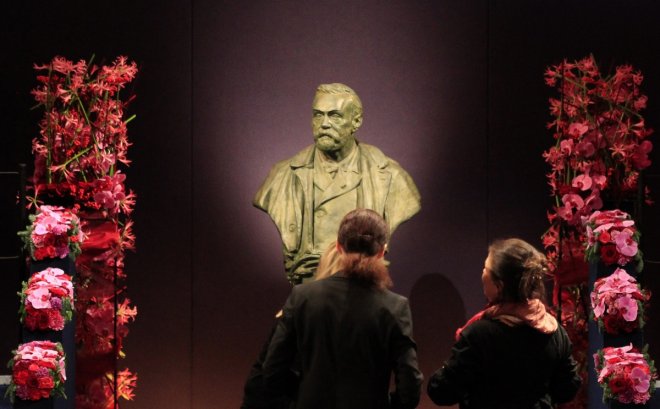
The world today celebrates the birthday of Nobel Prize founder Alfred Nobel. The scientist, who was born in 1833, would have turned 183 years old today!
The Nobel Prize is a set of annual international awards given for a number of categories by Swedish and Norwegian institutions for extraordinary contribution in the fields of academic, cultural, and/or scientific advances.
The committees, including Royal Swedish Academy of Sciences, the Swedish Academy, the Karolinska Institutet and others, just wrapped up the price announcement for this year. The prize was awarded to Yoshinori Ohsumi, Bob Dylan, Oliver Hart, Juan Manuel Santos and several others for their excellent work in their fields.
10 less known facts about Alfred Nobel:
1. Alfred Nobel's full name was Alfred Bernhard Nobel and he was Swedish by origin.
2. Nobel was a chemist, engineer, inventor, businessman, and philanthropist.
3. Other than inventing dynamite, he also owned Bofors, which, under his guidance, became major manufacturer of armaments from an iron and steel producer.
4. Nobel faced a tough childhood, his father Immanuel Nobel became bankrupted in the same year (1833) Alfred Nobel was born due to the loss of some barges of building material. However, he was able to regain his old status after undertaking new enterprises.
#BornOnThisDay in 1833, the founder of the Nobel Prizes, Alfred Nobel. Mural by @KobraStreetArt in Borås, Sweden. #InspiredByPeace pic.twitter.com/mNARpoN8x0
— Nobel Peace Center (@NobelPeaceOslo) October 21, 2016
5. Nobel received quality education during his childhood and he enjoyed English literature and poetry the most. However, Alfred's father disliked his son's interests as he wanted him to join his enterprise as an engineer.
6. Nobel made several inventions. After inventing dynamite, he invented gelignite in 1875 and he patented ballistite in 1887.
7. He became an elected member of the Royal Swedish Academy of Sciences in 1884, the same institution that now selects laureates for two of the Nobel prizes.

8. Though he remained a bachelor throughout his life, his biography revealed three serious relationships, none of which unfortunately lasted long.
9. He was accused of "high treason against France" for selling Ballistite to Italy, following which he moved from Paris to Sanremo, Italy in 1891. He was also suffering from prolonged heart ailments and died on 10 December 1896.
10. One year before his demise, Nobel signed his last will and testament at the Swedish-Norwegian Club in Paris. He left behind most of his wealth to establish the Nobel Prizes, which he wanted to be awarded annually without distinction of nationality.










